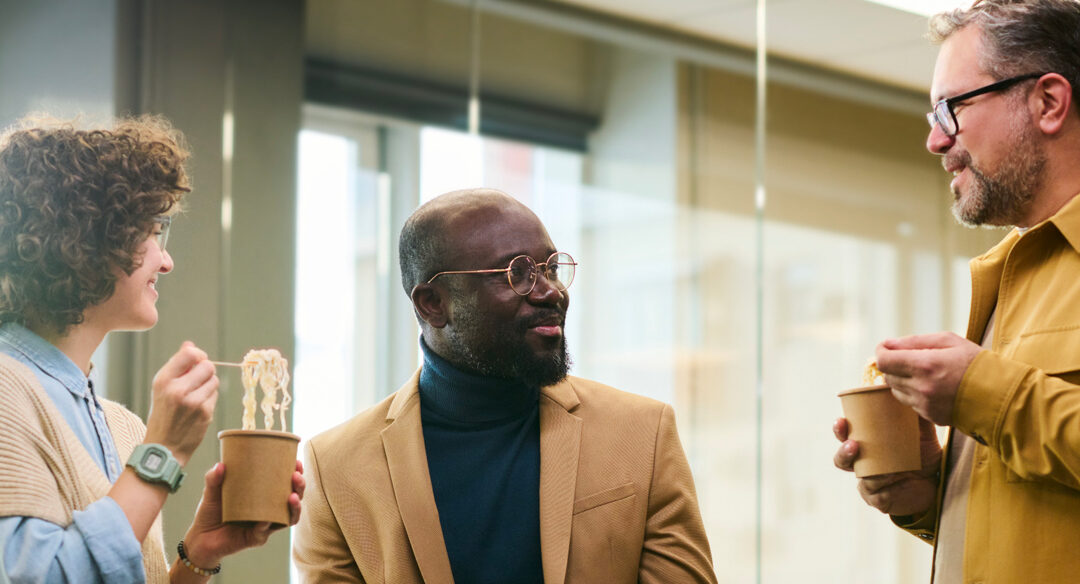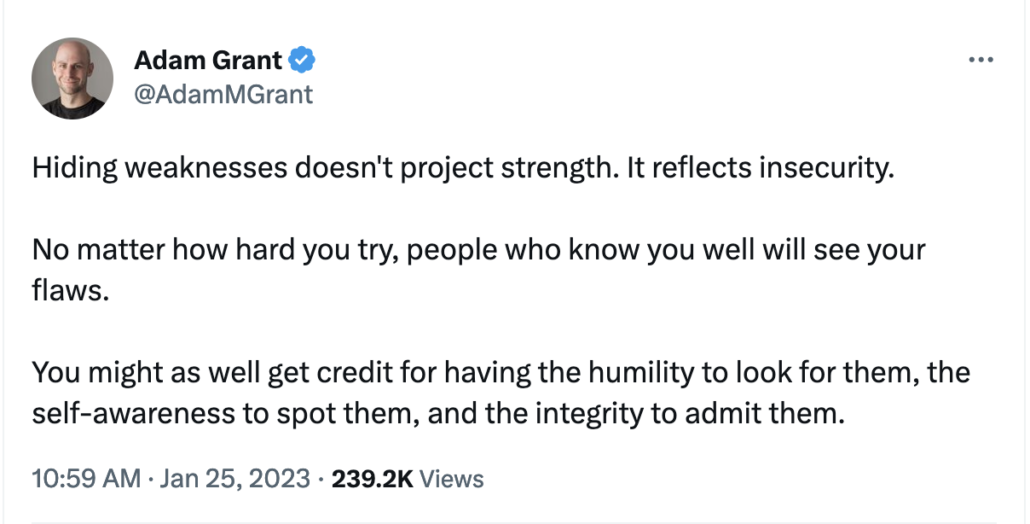Written By: Haley Rafferty
Who are you? What is your communication style? Where are you biased?
Answering these questions, and others like them, can illuminate your level of self-awareness.
For example, I know that I have an expressive face. This can be a good thing because it shows that I am engaged in a conversation and listening intently to whoever is speaking. However, it can also get me in trouble if I don’t understand or don’t agree with what is being said. I know this about myself and make adjustments as needed.
But working on self-awareness is not a solitary activity and nothing operates in a vacuum. We are all shaped by the world around us. Sometimes this is in positive ways and sometimes it forms our biases and limitations. I certainly didn’t learn about my facial expressions from staring in the mirror constantly – friends and colleagues (nicely) filled me in.
Sometimes we need others to point out things about ourselves that we can’t see. That may be trusted friends, colleagues, a therapist or family members.
This feedback is crucial. We need to understand and acknowledge our limitations in order to be motivated to grow. Only then can we loop back around to apply those learnings through self-reflection.
Typically, we talk about self-awareness as a critical piece of overall Emotional Intelligence.
But, self-awareness is also a lesser-discussed component of successfully practicing cultural humility and cultural competence. Just like how we as individuals need to spend some time on self-awareness, so too do organizations.
DEI and ESG efforts are crucial, but are you really seeing what your company is doing well and what it is lacking? Or what is resonating and what is falling flat?
If your organization’s leaders are only talking amongst themselves and not seeking external feedback, they’re missing a big part of the puzzle.
My colleague, Helen, and I recently attended a Reverse Diversity panel at UNCC where students serve as panelists and employers are the audience. During that talk, I learned about the importance of distinguishing between the term Cultural Humility and Cultural Competence.
Competence evokes overarching understanding – but can we (or our companies) really have competence of all cultures, backgrounds, faiths, genders, disabilities, etc? There’s only so much lived and learned experience that one person or company can gather in a lifetime.
Practicing Cultural Humility instead embraces what we don’t know. It acknowledges an effort to understand and respect, while still leaving room to learn more and experience more.
As much as we all want to exude confidence and expertise, there’s a fine line between “faking it until you make it” and just plain ignorance.
As Adam Grant astutely tweeted:
When we all take responsibility to work on self-awareness together, it creates better individuals, better organizations and better communities.
So remember, there’s no “I” in self-awareness, but there is “we”.

